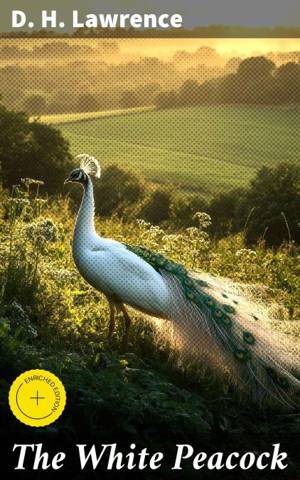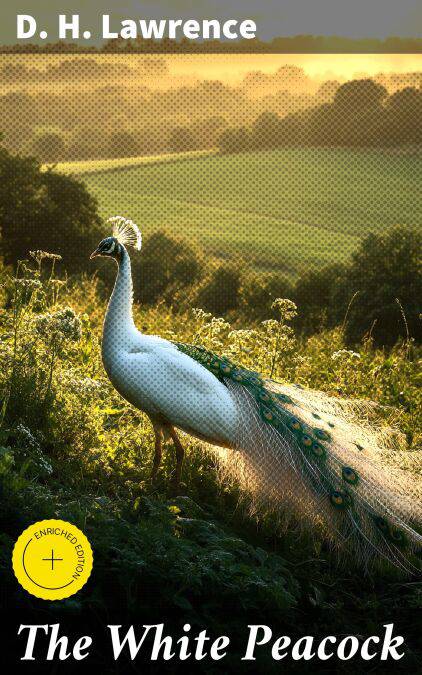
- Afhalen na 1 uur in een winkel met voorraad
- Gratis thuislevering in België vanaf € 30
- Ruim aanbod met 7 miljoen producten
- Afhalen na 1 uur in een winkel met voorraad
- Gratis thuislevering in België vanaf € 30
- Ruim aanbod met 7 miljoen producten
Zoeken
The White Peacock E-BOOK
Exploring Love and Nature: A Tale of Human Relationships
D. H. Lawrence
E-book | Engels
€ 1,99
+ 1 punten
Uitvoering
Omschrijving
D. H. Lawrence's debut novel, "The White Peacock," presents a rich tapestry of rural life in England, intricately weaving themes of love, nature, and the search for identity. Set against the backdrop of the Nottinghamshire countryside, the narrative follows the intertwining fates of the human characters and their relationship with the land and each other. Lawrence'Äôs lyrical prose and vivid descriptions create a profound sense of place, reflecting both the beauty and the turmoil of rural existence, while the novel's symbolism, particularly in the motif of the white peacock, serves to explore themes of individuality and societal constraints in the early 20th century literary context. Born in 1885 in a coal-mining town, D. H. Lawrence drew from his personal experiences and deep love for the natural world, imbued by his working-class upbringing. His early life in the Midlands profoundly influenced his worldview, as he grappled with issues of class, gender, and sexual tension'Äîthemes that are not only present in this novel but also recur in his later works. The confluence of personal observation and broader social commentary makes Lawrence a quintessential voice of the modernist movement, as he sought to illuminate the complexities of human emotions. For readers seeking an engaging exploration of early 20th-century English society and an immersive reflection on human relationships, "The White Peacock" stands as a compelling introduction to Lawrence'Äôs literary genius. The novel's evocative writing and thematic richness invite readers to contemplate their own connections to the natural world and to the societal structures that shape their lives.
Specificaties
Betrokkenen
- Auteur(s):
- Uitgeverij:
Inhoud
- Aantal bladzijden:
- 464
- Taal:
- Engels
Eigenschappen
- Productcode (EAN):
- 4057664651341
- Verschijningsdatum:
- 20/11/2019
- Uitvoering:
- E-book
- Beveiligd met:
- Digital watermarking
- Formaat:
- ePub

Alleen bij Standaard Boekhandel
+ 1 punten op je klantenkaart van Standaard Boekhandel
Beoordelingen
We publiceren alleen reviews die voldoen aan de voorwaarden voor reviews. Bekijk onze voorwaarden voor reviews.







